Keep Safety Top of Mind
We're committed to maintaining a safe and reliable system for you. We go beyond state and federal requirements when it comes to pipeline safety and we encourage you to do your part too.
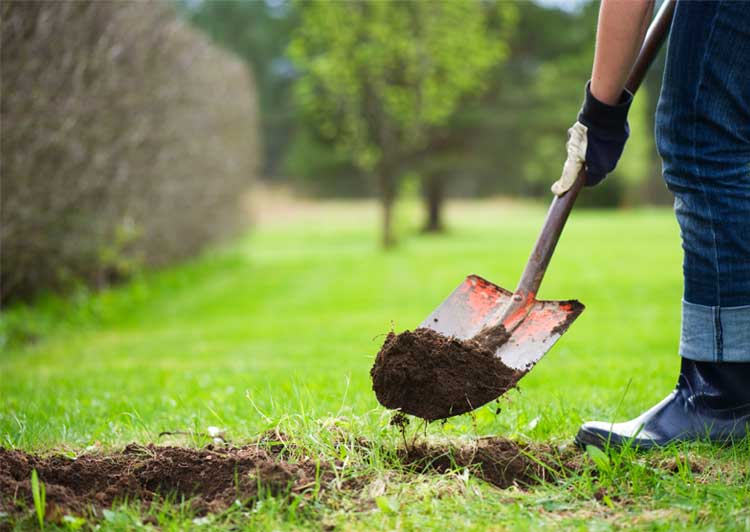
Before You Dig
Call 811 or Visit 811beforeyoudig.com
Whenever you're planning a project that requires digging in your yard (gardening, landscaping, home improvements, demolition, etc.), call 811 or visit 811beforeyoudig.com first.
- Have utility lines marked before you dig.
- Avoid damage to underground lines that could cause service disruption, property damage, or injury.
- Plan in advance to avoid damage, repairs, project delays and costly fines.
Be safe. Call 811 or Visit 811beforeyoudig.com Before You Dig!
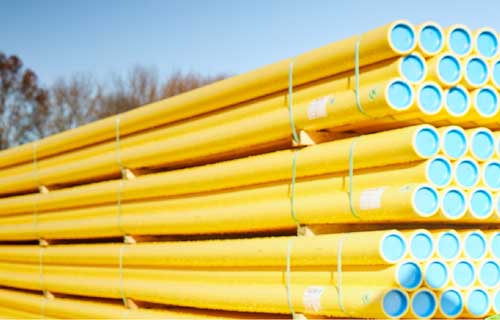
Infrastructure Investment
We carefully and proactively maintain and improve our network of underground delivery systems to safely and reliably deliver natural gas to your home or business.
- Regular visual inspections and replacement reduce emissions
- Natural gas infrastructure provides a safe delivery system for carrying the decarbonized energy of the future
- Modernized system & processes reduce environmental impact
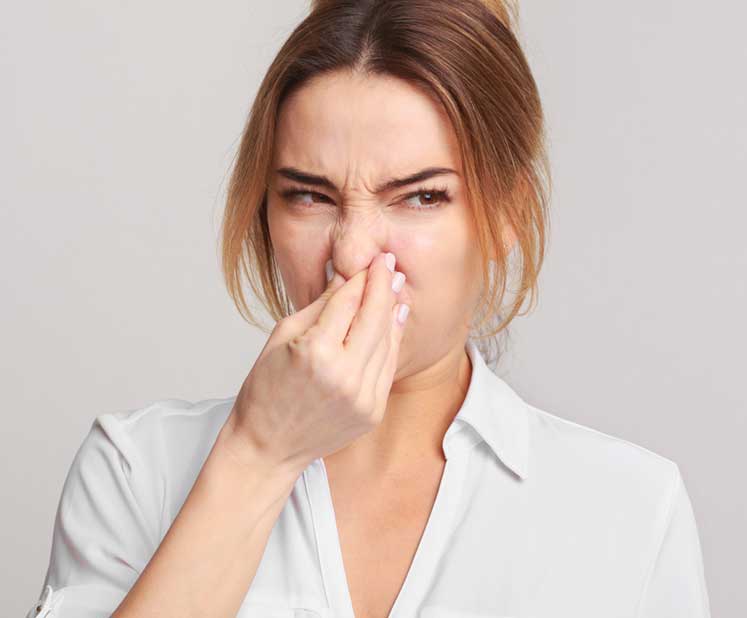
Smell gas? Act fast!
LEAVE THE BUILDING IMMEDIATELY. Call 911 and Elizabethtown Gas 1.800.492.4009
- Natural gas is odorless. A harmless chemical is added to natural gas, which makes it smell like rotten eggs. So, if you smell rotten eggs, you may be smelling natural gas. And it’s time to act.
-
Avoid causing a spark:
- Do not light a match or smoke.
- Do not turn appliances or lights on or off.
- Do not use a flashlight.
- Do not start a car.
- Do not use a telephone.
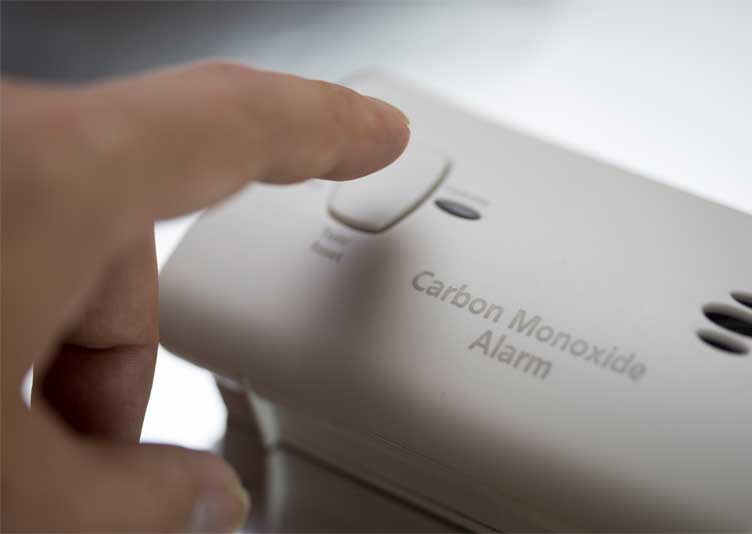
Carbon Monoxide – What is it? How do I detect it?
- Carbon monoxide, or "CO" is an odorless, colorless, tasteless gas that can cause illness or death.
- Your best defense is prevention. Install a CO detector in your home and check or replace the battery regularly. A good time is when you change the time on your clocks each spring and fall.
- The most common symptoms of CO poisoning are headache, dizziness, weakness, upset stomach, vomiting, chest pain, and confusion. Install a carbon monoxide detector.
- Signs of carbon monoxide buildup are stuffy or stale air, very high humidity, fallen soot from your chimney or draft hood, and a hot draft coming from your draft hood.
- Keep the area surrounding your gas appliances clear from clutter or trash.
If you suspect carbon monoxide exposure: LEAVE THE AREA IMMEDIATELY, call 911 and seek medical attention.
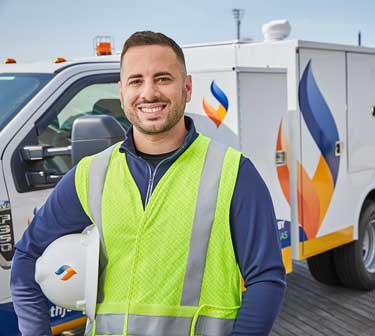
Scams and Fraud
There are times when an Elizabethtown Gas representative may knock on your door. All ETG representatives, including our Contractors and Heath Consultants carry ID. The ID should include the following: company logo, photo of employee or contractor, employee number or name of contractor company, expiration date, and the name of the employee or contractor.
- Although our uniforms may differ depending on the season and the kind of work we do, our employees will always have an ID.
- Our employees will gladly provide you their supervisor’s name if asked.
- If you're in doubt about the identity of someone coming to your home, call us at 1.800.242.5830, Option 4.
- If you ever feel unsafe, call 911.
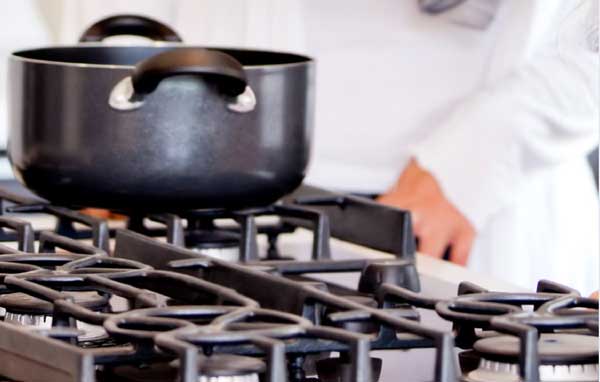
Appliance Safety
When using natural gas appliances, always remember to:
- Follow the owner’s manual instructions and only use your appliances for their intended purpose.
- Never use your oven or range top to heat your home.
- Change the filter on your furnace a minimum of every three months.
- Keep the area around your furnace and water heater clear.
- Keep flammable or combustible items away from gas appliances and equipment.
- Gas appliances should have proper air circulation at all times.
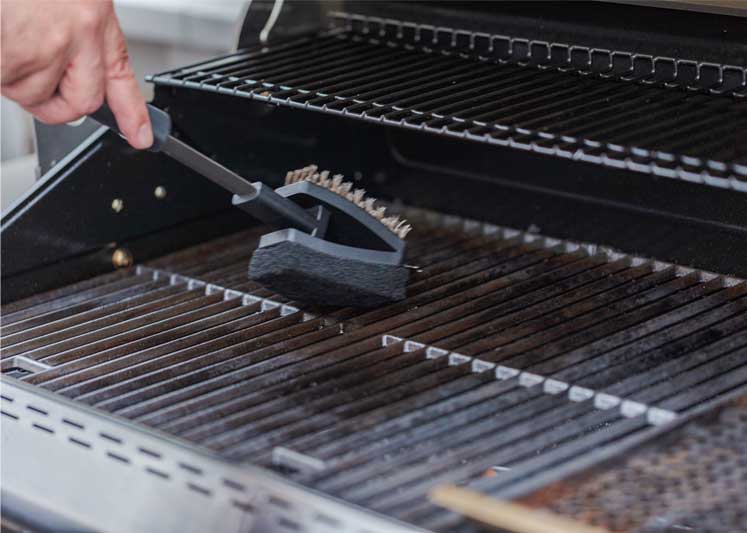
Grilling Safety
- Keep grill in a well-ventilated area and away Keep the grill away from the house, deck railings, and out of the way of eaves and overhanging branches.
- Keep children and pets away from the grill area.
- Always make sure your gas grill lid is open before lighting it.
- Keep your grill clean by removing grease or fat buildup from the grills and in trays below the grill.
- Don’t use an outdoor grill to cook indoors.
- For propane grills, check the gas tank for leaks before use in the months ahead.
- When using charcoal starter fluid, only use charcoal starter fluid. Never add any flammable liquids to the fire, including charcoal fluid. Allow the coals to cool completely before disposing of them in a metal container once you have finished grilling.
- Never leave your grill unattended when in use.
-
Help reduce the threat of foodborne illness with these tips from The
U.S. Department of Agriculture:
- Wash Your Hands with warm, soapy water for at least 20 seconds.
- Use a Food Thermometer - Germs that cause foodborne illness cannot be seen, smelled, or tasted. The only way to ensure that your food is fully cooked to a safe minimum internal temperature is to use a food thermometer. When grilling ground meats (beef, pork, veal, or lamb), use a food thermometer to ensure an internal temperature of 160 F. When ground poultry reaches an internal temperature of 165 degrees Fahrenheit, it is safe to eat.
-
Avoid Cross-Contamination
- Use separate cutting boards—one for raw meat and poultry and the other for fruits and vegetables.
- Use separate plates while grilling—one for bringing raw meat and poultry to the grill and the other for removing cooked meat and poultry off the grill.
- Keep grill in a well-ventilated area.
- Keep potentially combustible materials away from the grill.
- Keep children and pets away from the grill area.
- Regularly clean any accumulated grease or fat.
- Don’t use the grill if you smell gas.
- Don’t use the grill to cook indoors.
